It’s been two years since Huawei released the P30 Pro — a device that would go on to be the last Huawei flagship with Google services. The Chinese giant has launched several flagship smartphones since the introduction of the crippling US trade embargo, but none have had access to the backbone of Android’s entire app experience.
Today I want to take a look at the P30 Pro in 2021 to see what value this once innovative smartphone can bring in 2021. Is it worth buying the P30 Pro two years later? Find out in this Huawei P30 Pro redux review.
Huawei P30 Pro: The background
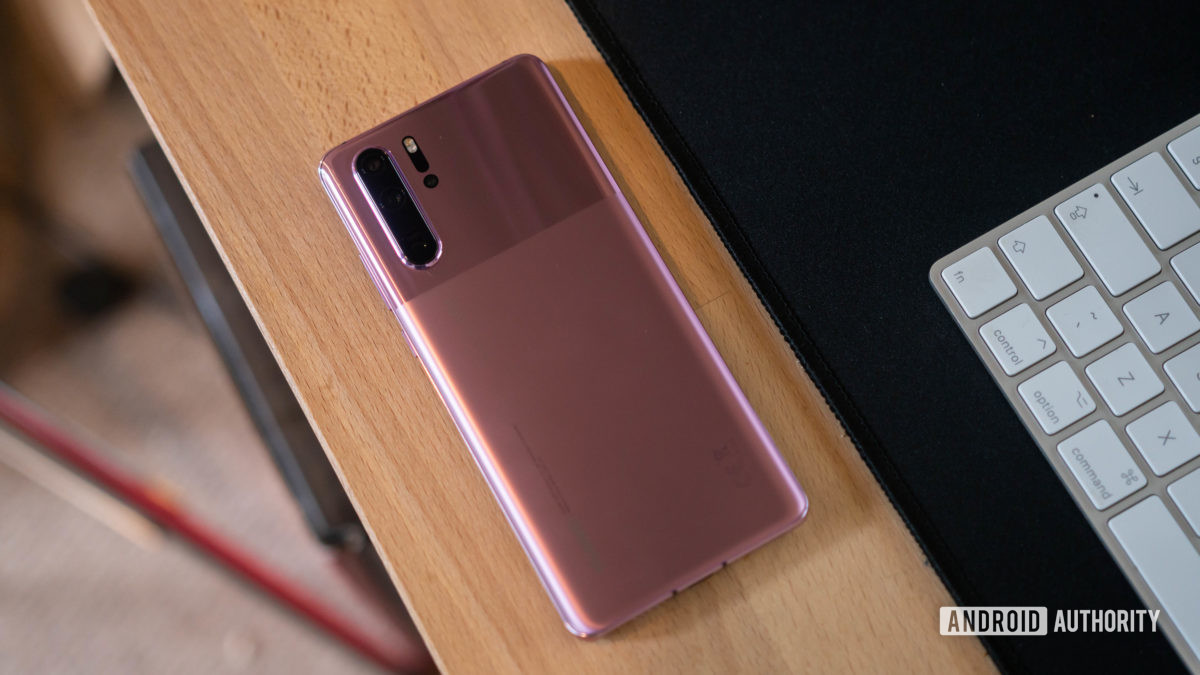
The Huawei P30 Pro, released in March 2019, was an incredibly innovative flagship smartphone. It had a strong set of internal hardware headlined by Huawei’s custom Kirin 980 SoC, super-fast charging 40W (that is still competitive today), and brilliant battery life. It also introduced the periscope zoom camera system to the mainstream.
It built on its predecessor’s design by introducing smaller bezels and curved sides. It also shrank the notch to a water droplet design, upped its ingress protection from IP67 to IP68, and brought in wireless charging to the P series.
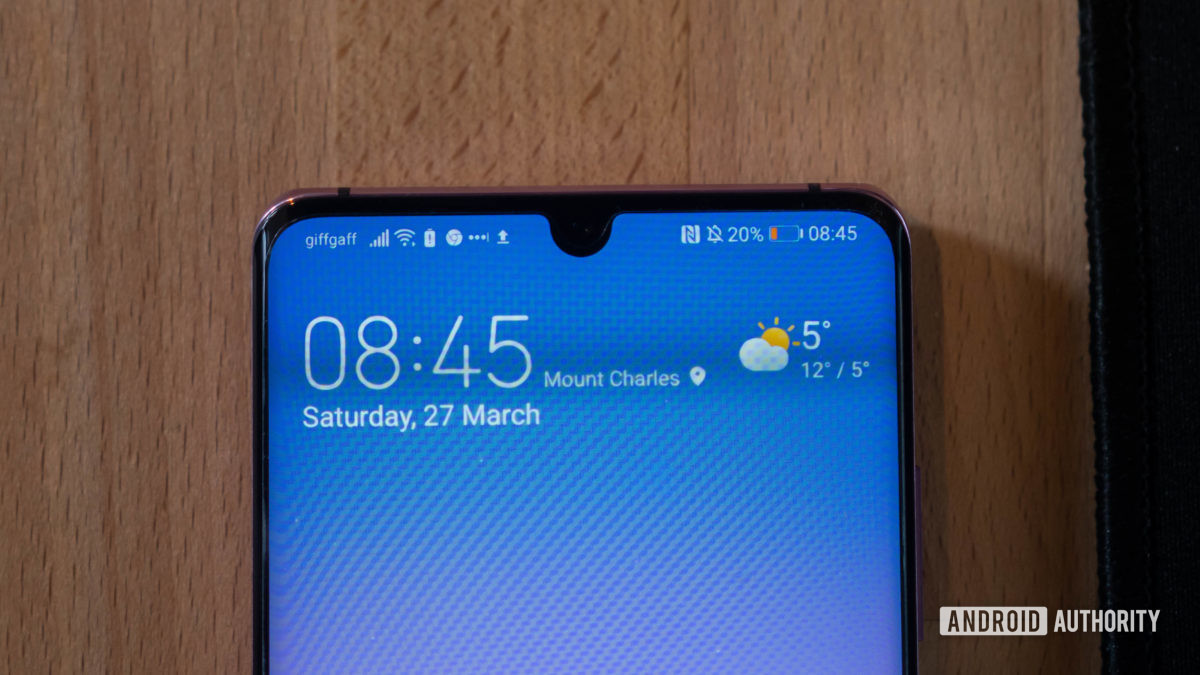
Huawei’s P30 Pro was very competitive with the likes of Samsung’s Galaxy S10, Apple’s iPhone XS, and Google’s Pixel 3 XL at the time. It offered a similar level of quality but with more features. It had faster charging, the most capable camera system, and some of the best battery life. Huawei’s chipset, however, wasn’t as powerful — especially in the graphics department.
The P30 Pro introduced the periscope zoom cameras to the mainstream.
During IFA 2019, Huawei announced that it had sold 16 million P30 Pro units in its first six months. That might not be Apple or Samsung-level, but it’s still mighty impressive and was another sign that Huawei’s ascent towards the top of the smartphone market was set to continue… until it all came crashing down.
How does it hold up?
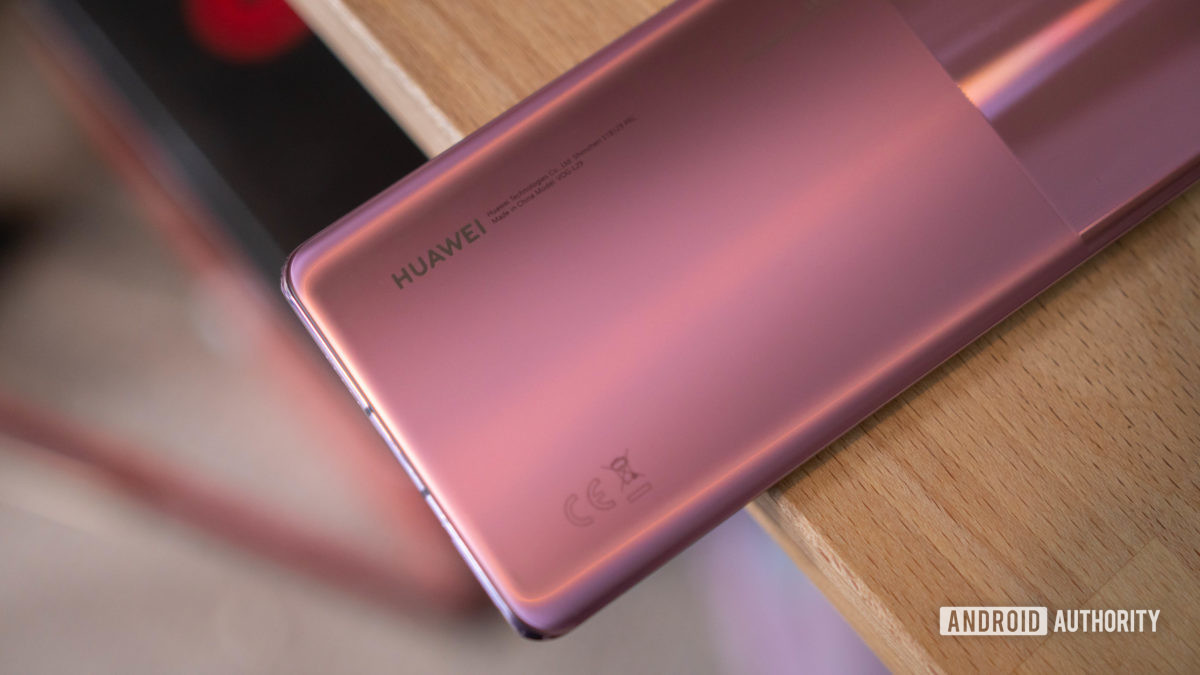
Before we start, I should note that the model I’ve been testing is the regular Huawei P30 Pro and not the “New Edition” model that arrived in mid-2020. You can read more about the changes in the latter model here, but as far as the fundamentals go it’s the same phone with a minor specs boost and a matte finish.
As for the regular Huawei P30 Pro — it looks pretty good in 2021. That said, it is rather obvious that it’s an older phone. In 2021, we’re used to seeing devices with punch-hole designs and rectangular camera modules on the back. These are two traits of later Huawei P series models. This water droplet notch and pill-shaped camera module design hark back to previous design trends.
Continue reading: Huawei P40 Pro review: Refinement done right
The P30 Pro still has some modern design elements, though. It has curved sides to its display for a waterfall-like effect, it’s made out of metal and glass, and has an in-display fingerprint sensor. Elsewhere, you’ve also got standard features of any recent flagship phone such as USB-C, AC Wi-Fi, and a triple camera array on the back. It might not be bleeding-edge, but the P30 Pro is still very usable from a hardware perspective in 2021.
From a hardware standpoint, the P30 Pro holds up well.
The display is one of the phone’s more aged features. It’s a 6.47-inch 1080p 60Hz OLED display. Visually, it’s still a great panel. It’s bright and colorful with plenty of contrast thanks to the OLED technology. However, at 60Hz, it feels more sluggish than the 120Hz displays found in many of 2021’s smartphones. I often say that it’s not the processor that makes a device feel fast, but the refresh rate of the display. The same goes for the P30 Pro. Its internal components aren’t slow by any means, but you’ll feel that performance disparity most prominently when swiping around. This is where a high refresh rate flourishes.
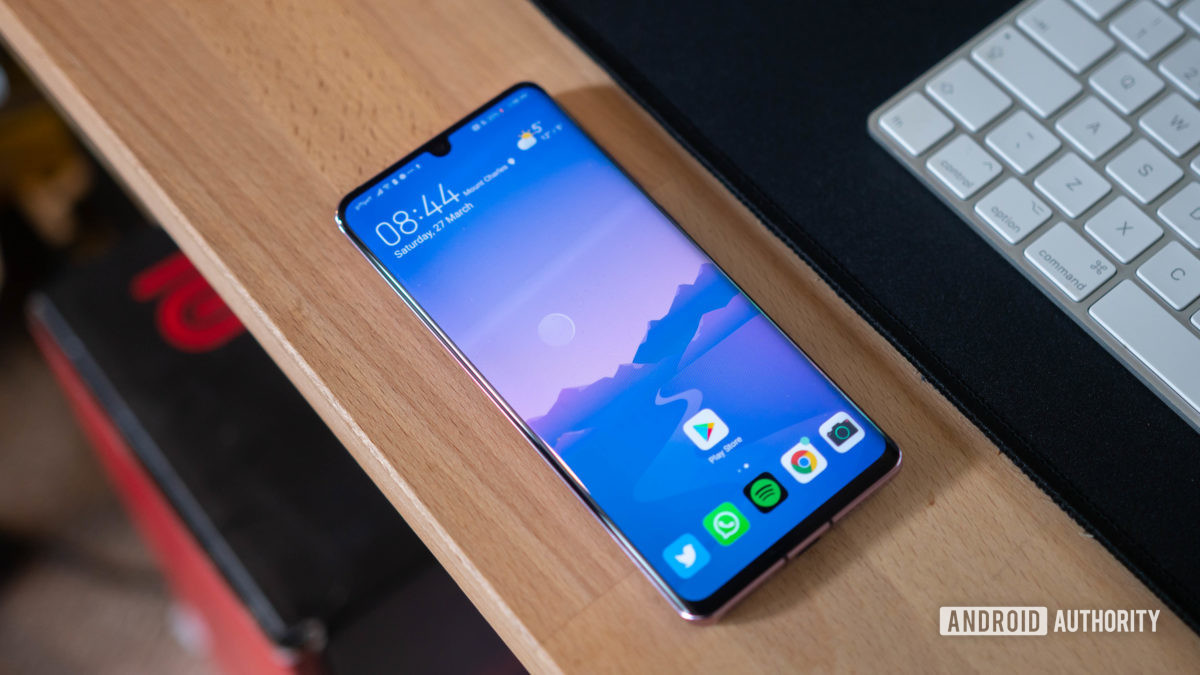
The P30 Pro’s processor holds up under stress given its age. Real Racing 3 and PUBG Mobile ran well during my tests. The user experience isn’t perfect and I noticed some stutters, but it’s still solid. It’s also smooth enough when scrolling through socials and switching between apps. This is likely thanks to the 6GB-8GB RAM that Huawei originally fitted the device with.
Related: Buying a used phone: The do’s and dont’s
Battery life will depend on how used your unit is. This one managed two days of light usage with about 5% left on the second day. I’m not a huge gamer, but I do spend a lot of my day with the brightness at 50-60% and I spend more time browsing social media than I’d care to admit.
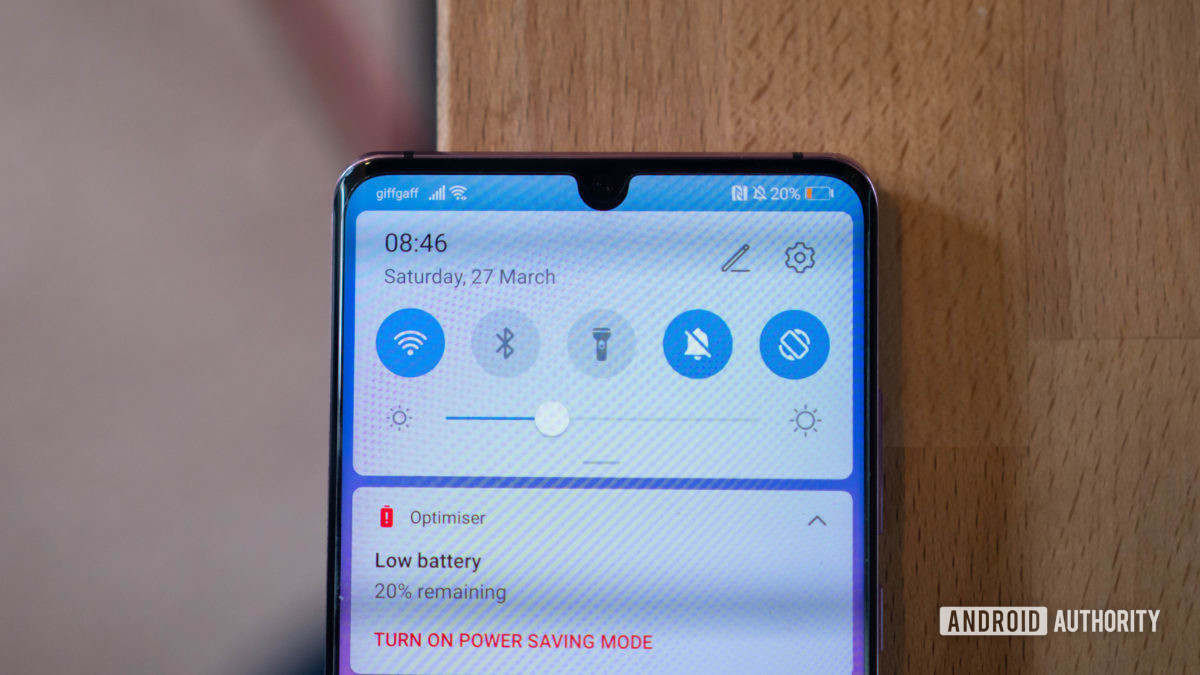
Charging the P30 Pro might be better than the battery life itself, which is saying something. It comes with a 40W brick in the box and can charge the device from zero to 70% in 30 minutes which is as fast as I need. Even in 2021, this is still an impressively fast charger, especially when you consider the Galaxy S21 series maxes out at 25W. You’ve also got wireless and reverse wireless charging completing the comprehensive battery package.

There is one big concern when it comes to using the Huawei P30 Pro in 2021: software support. This might come with Google’s services, but they’re two years out of date. This means that, for the foreseeable future, you’re stuck with Android 10.
Huawei is currently rolling out EMUI 11 to P30 Pro devices, but despite its deceiving name, it’s still running on Android 10. Based on this and the fact that it’s already a two-year-old device, I wouldn’t count on the P30 Pro ever getting a new official version of Android.
See also: Everything you need to know about EMUI 11
That said, my time with the P30 Pro has proven to me that you don’t need the latest software to have a good experience. The only app that I was unable to install was Netflix and that’s likely because the device I tested is an older review unit. I had no trouble installing and using the rest of my standard app suite which includes Twitter, Amazon, eBay, Instagram, and Spotify — all through the Play Store.
On the whole, I have no complaints about using the P30 Pro in 2021. Some may be turned off by the outdated hardware and software, but it’s still a very usable phone in 2021 despite these pitfalls.
How do the cameras perform?
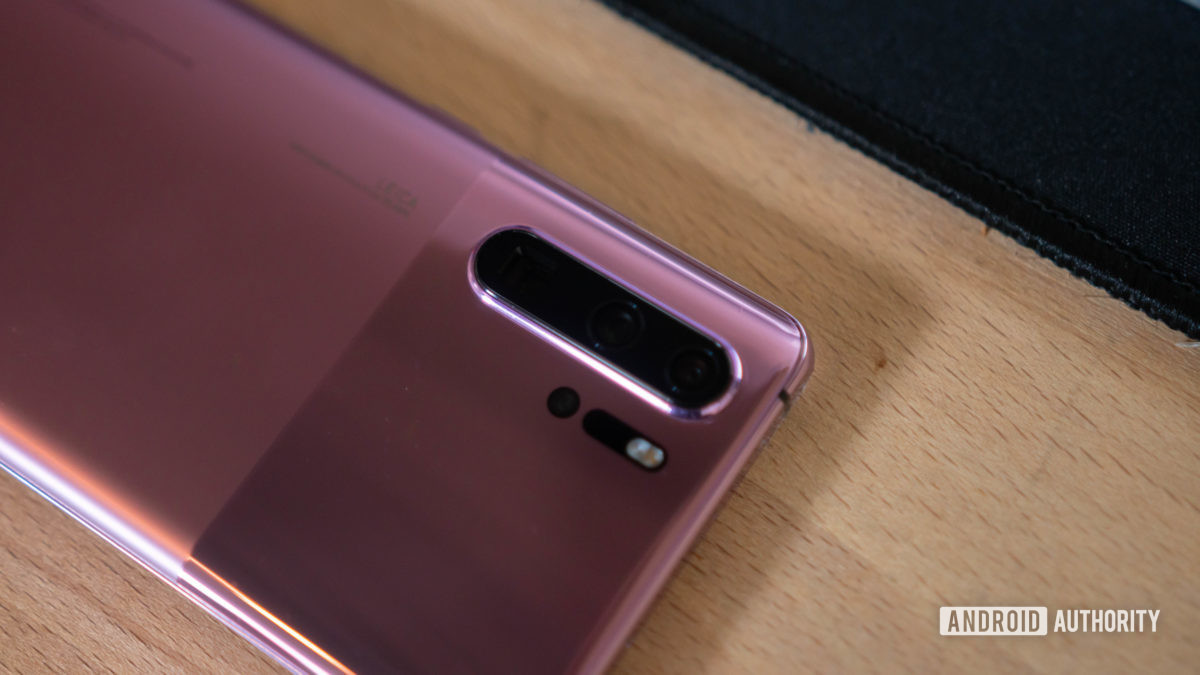
The Huawei P series is famous for its camera tech and the P30 Pro represented another leap forward for the company. Most notably, the P30 Pro snatched Huawei the mantle of being the first company to mass-produce a phone with a periscope zoom camera.
| Huawei P30 Pro | |
|---|---|
| Rear cameras: | 40MP main, f/1.6, 27mm, 1/1.7-inch sensor, OIS 20MP ultra-wide, f/2.2, 16mm, 1/2.7-inch sensor 8MP 5x periscope zoom, f/3.4, 1/4-inch. sensor, OIS Video: UHD 4K 30fpss FHD 60fps HD 960fps |
| Front camera: | 32MP, f/2.0, 1/2.8-inch sensor Video: FHD video at 30fps |
The P30 Pro had a class-leading camera system in 2019 featuring a huge 1/1.7-inch 40MP main sensor, a 20MP ultra-wide, and the famous 8MP 5x optical periscope zoom camera. There’s also a Time of Flight sensor on the back and a 32MP selfie camera on the front. The device can shoot 4K video at up to 30fps and 720p 960fps slow-motion. These specs aren’t far off what we see in 2021 flagships.


The Huawei P30 Pro’s images are still impressive. The contrast-heavy processing might not be to everyone’s taste, but the objective image quality is very good. There’s plenty of sharpness and detail across the board and Huawei’s sensors accurately capture color information.



Consistency across the three lenses isn’t perfect. The zoom lens is a little softer than the main, as is the ultra-wide. The main sensor is a little more magenta than the other two, but it’s not hugely jarring and for a phone of this age and price.



We were very impressed with the low-light performance from the P30 Pro when it came out and I have to say that it’s aged incredibly well. Taking photos in near pitch-black darkness with the night mode can transform photos with an uplift in detail and sharpness. Just as we said two years ago — this thing can see in the dark.



Huawei’s portrait and aperture modes are feature-rich and powerful. The former allows you to change the shape of the virtual bokeh which, for instance, can allow you to mimic anamorphic lenses with the disk bokeh. As a bit of a photography nerd, I appreciate that. The latter allows you to change the amount of simulated bokeh by giving you a virtual aperture slider. This is handy for getting a really thin depth of field if you so desire.



Edge detection in both modes is pretty good though not perfect. That said, no phone has managed to nail perfect edge-detection. The one annoyance with the P30 Pro’s portrait mode is that it only works with human faces. The aperture mode, however, works with objects, too.



The 32MP selfie camera packs plenty of pixels, but the images come out looking a little soft for a camera with such a high resolution. They’re not awful, but Huawei’s skin smoothing does become rather intrusive which is annoying when you want a simple selfie.


The P30 Pro’s camera system is still undeniably brilliant and one of the best on the renewed market thanks largely to the powerful hardware at its disposal.
Related: The best camera phones you can get
Huawei P30 Pro review redux: The verdict
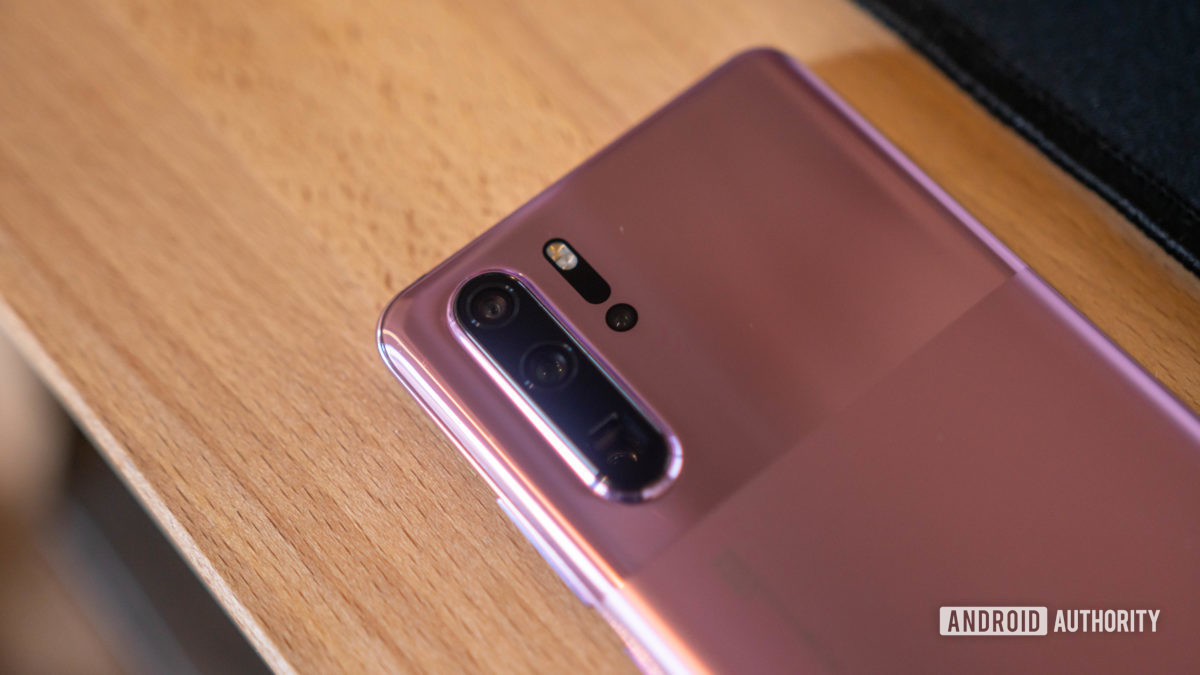
After spending some time with the Huawei P30 Pro in 2021, I can honestly say that it’s one of the best older flagship phones you can still buy today as a piece of hardware. This is all thanks to its impressive design and build quality, solid performance, brilliant battery life, and stellar camera performance. For just over £400 new or £250 used in the UK (~$350- $550), the P30 Pro is a steal — on paper, at least.
The P30 Pro is a bittersweet reminder that Huawei is among the best in the business at crafting smartphone hardware.
The problem is, I can’t recommend the P30 Pro due to its lack of long-term software support. If you’re buying it to have fun with the cameras and it’s not your main device, it’s certainly viable. That said, I wouldn’t pick one of these up to use it daily, especially when security updates could be permanently halted at any time and with no sign of Android 11, let alone Android 12. If you’re prepared to take the risk on software vulnerabilities, then you’ll love this phone, but it’s something to keep in mind before spending your cash.
The P30 Pro is a testament to what could have been and a bittersweet reminder that, as far as hardware goes, Huawei was and still is among the best in the business.
- £429 at Amazon Save £70 .00
No comments:
Post a Comment